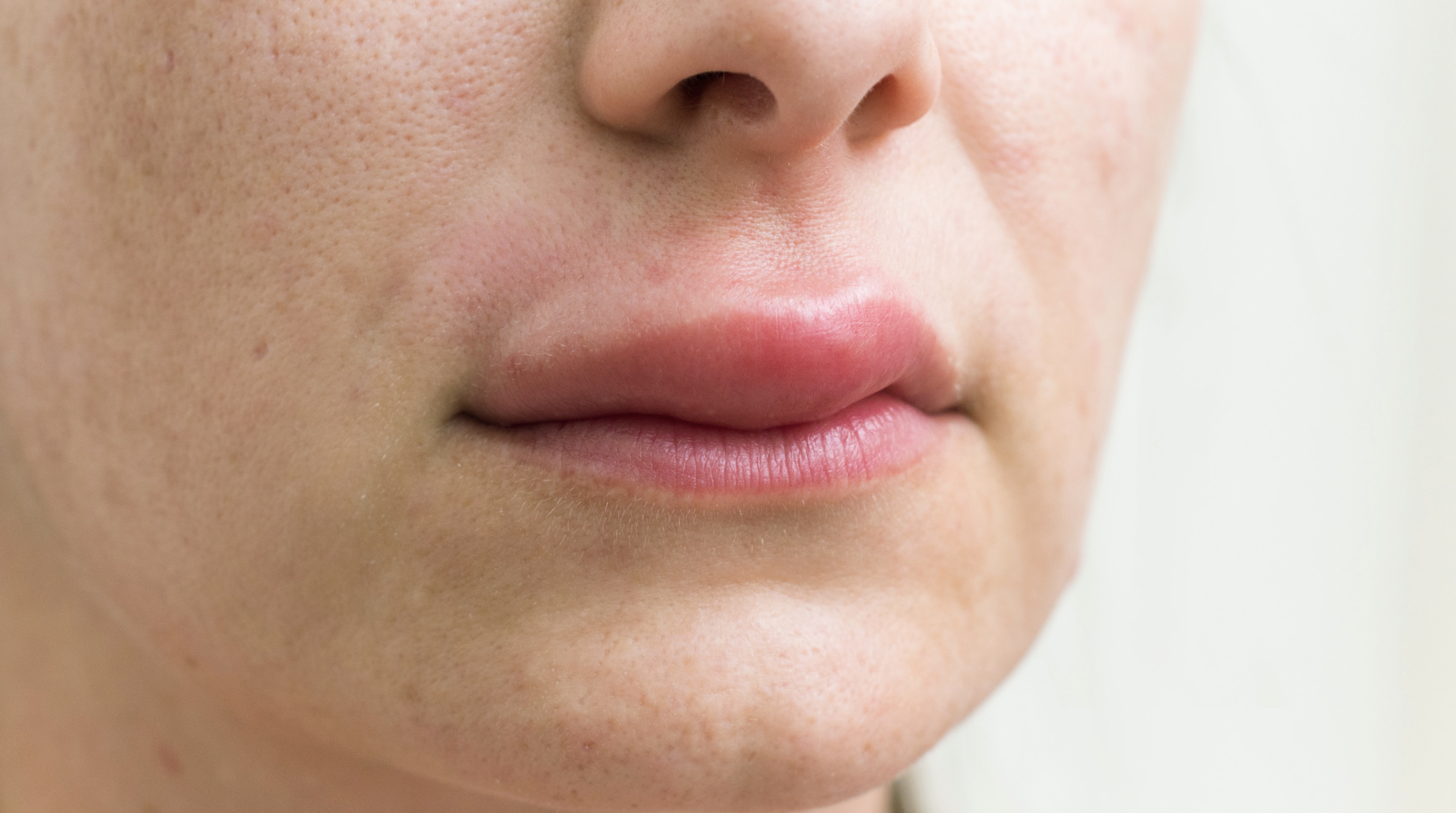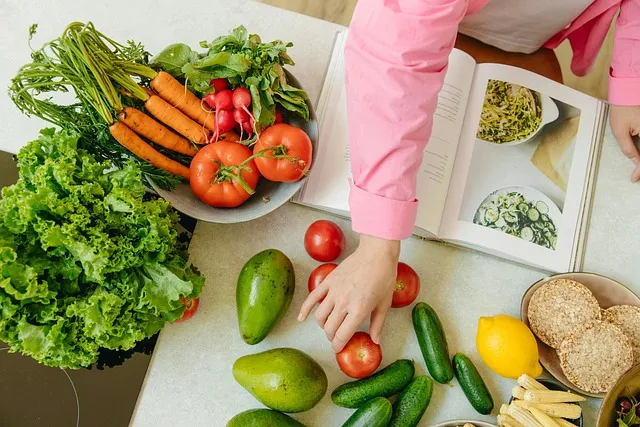Ever feel unusually puffy or bloated, especially as you get older? One common culprit is water retention, often influenced by the foods you eat. Certain dietary choices can make your body hold onto excess water, leaving you feeling swollen, uncomfortable, and sluggish. In this blog, we’ll explore the top foods that cause water retention (edema) and share effective tips to reduce it naturally.
Top 8 Foods that Cause Water Retention
The following are the foods that lead to water buildup (called edema):
1. High-Sodium Foods
A study states that high intake of sodium is the primary culprit behind water retention. Your body maintains a specific sodium-to-water ratio, and when sodium intake increases, your body retains extra water to control the balance of excess salt.
Examples of High-Sodium Foods:
-
Canned soups and broths
-
Packaged snacks, such as crackers, pretzels, and chips
-
Processed cold cuts and deli meats
-
Instant noodles and salted nuts, and popcorn
-
Ready-made meals and frozen dinners
Tip: Opt for "low-sodium" foods and add herbs for flavor instead of salt. According to the Food and Drug Administration (FDA), you should not consume more than 2,300 mg of sodium a day.
2. Refined Carbohydrates
Refined carbs increase blood sugar & insulin levels, which tells the kidneys to re-absorb more sodium, causing fluid retention. In addition, they are preserved as glycogen in the liver and muscles, which holds approximately 3-4 g of water, further leading to increased water retention.
Examples of Refined Carbohydrates:
-
White bread and white rice
-
Pasta and sugary cereals
-
Pastries, cakes, and baked goods
-
Processed snacks and crackers
Better option: Choose whole grains such as brown rice, oats, and quinoa.
3. Sugary Foods
Consuming excessive sugar-rich foods or beverages can increase blood sugar levels, causing the body to increase insulin levels, which retain more salt and water. Also, excess sugar intake can lead to inflammation and hormonal imbalance that impact fluid balance.
Examples of high-sugar foods to avoid or limit:
-
Sweetened beverages and soft drinks
-
Candy, ice cream, chocolate bars, and frozen desserts
-
Baked goods
-
Sauces and yogurt with added sugars
What to do: Cut down processed sugar and always carefully read the product's nutrition labels.
4. Processed Meats
Being loaded with excess salt, processed meats can retain water to balance out the excessive sodium. This causes puffiness and bloating. Moreover, the preservatives and additives in them increase water retention.
Examples of Processed Meats:
-
Bacon
-
Sausages
-
Deli meats, like salami and ham
Alternatives: Choose fresh, lean meats or plant-based sources of protein.
5. Fried or Fatty Foods
The high sodium content in fried or fatty foods can cause the body to retain an excess amount of water, leading to fluid retention. Also, fried foods, particularly those that contain high unhealthy fats, can cause inflammation throughout the body, which can worsen swelling. Moreover, high-fat foods take a longer time to digest, which can lead to bloating and stress on the digestive system, contributing to fluid buildup.
Examples of fried or fatty foods include:
-
Burgers
-
Fries
-
Hot dogs
-
Chips
-
Fried chicken
6. Caffeinated Beverages
Excessive intake of caffeinated beverages can lead to mild dehydration by increasing urine production, as caffeine is diuretic in nature. This can cause the body to preserve the water it already holds, contributing to fluid retention.
Examples of Caffeinated Beverages:
-
Coffee
-
Energy drinks
-
Sport drinks
-
Soda
Solution: Limit intake of caffeine and balance it out with proper hydration through water intake.
7. Certain Dairy Products (in some people)
Some dairy products can contain sugar and salt in excess amounts, and consuming them in excess can lead to water retention by causing a sodium and water imbalance. This especially occurs in people who are lactose intolerant.
Examples of Dairy Products:
-
Processed cheese
-
Cream cheese
-
Cottage cheese
-
Sweetened yogurt
-
Buttermilk
Tip: If you are sensitive to lactose, try plant-derived or lactose-free alternatives.
8. Alcoholic Beverages
-
As alcohol is a diuretic, it can cause dehydration (when taken in excessive amounts) by making you urinate often.
-
Dehydration can contribute to fluid retention by making the body conserve the water it already holds and causing a sodium-water imbalance.
-
Some drinks might contain sugar, which can also contribute to water retention.
Advice: Drink alcoholic beverages in moderate amounts and stay hydrated by drinking a lot of water.
Foods That Can Help Lower Water Retention
Adding these foods to your diet can help the body flush out excess water and balance sodium-water balance, helping reduce water retention:
Potassium-Rich Foods:
-
Bananas and avocados
-
Leafy greens, like spinach
-
Sweet potatoes
-
Lentils and beans
-
Cucumber and tomatoes
Natural Diuretic Foods:
-
Asparagus
-
Celery
-
Cranberries
-
Watermelon
Anti-Inflammatory Foods:
-
Berries
-
Fatty fish
-
Turmeric
-
Ginger
-
Leafy greens
-
Nuts
-
Seeds
How To Get Rid Of Water Retention?
Follow these measures to reduce water retention:
1. Avoid salt or salty foods: Reduces sodium intake, which lowers fluid buildup.
2. Consume potassium-rich foods: Examples include bananas, leafy greens, apricots, and avocados to balance fluids.
3. Drink a lot of water: It helps get rid of excessive sodium and toxins from the body.
4. Avoid processed foods: They often have hidden sodium as well as preservatives, causing fluid retention.
5. Increase magnesium intake: Eat whole grains, seeds, and nuts to control fluid balance.
6. Consume more diuretic foods: Examples are asparagus, celery, cranberries, cucumber, and watermelon, as they have high water content, which helps flush out excess water.
7. Take fiber-rich foods: Examples are berries, apples, green beans, sweet potatoes, and whole grains, which help keep the body from holding on to water.
8. Get more protein: Eat meat, beans, and fresh greens as they attract water into the bloodstream and regulate fluid balance.
9. Exercise regularly: Assist with improved blood circulation and reduced swelling.
10. Limit alcohol and caffeine intake: Both can cause dehydration and trigger water retention later.
11. Consider dandelion root: Increases urine production and flushes out excessive sodium and water through the kidneys. Take it under a doctor's guidance.
12. Elevate your feet: Help move the fluid out of the feet and ankles, which relieves swelling.
13. Check your medications: Certain medicines can also cause water retention. So, speak with a doctor for the right solution if needed.
14. Get more vitamin B6: Eat vitamin-B6-rich foods, like bananas, walnuts, chickpeas, tuna, and potatoes, which help reduce retention by flushing out more water and sodium by supporting kidney function.
15. Wear compression garments: Examples are compression socks, sleeves, or stockings, which work by boosting blood flow to the legs and arms and preventing swelling from fluid buildup.
Other Causes of Water Retention
Along with diet, other factors can also contribute to fluid retention:
-
Dehydration: Insufficient water can make the body hold onto water to prevent excess water loss.
-
Lack of physical activity: Standing or sitting in one place for a long time can lead to the accumulation of fluid in the legs and ankles.
-
Hormonal changes: Hormonal fluctuations during pregnancy, menstruation, and menopause can cause the body to hold onto water for a temporary period.
-
Certain medications: Blood pressure medicines, steroids, antidepressants, and NSAIDs can also contribute to water retention as a potential side effect.
-
Underlying health conditions: Heart failure, liver disease, kidney issues, thyroid problems, arthritis, and autoimmune diseases (e.g., lupus) can interrupt fluid retention, leading to swelling.
-
Hot weather: During the summer seasons, the body becomes less efficient at eliminating fluid from tissues due to the dilation of blood vessels, leading to retention risk.
-
Menstrual cycle: Some women experience edema in the 2 weeks before their menstruation due to changes in the hormonal balance, increasing the chances of water retention.
-
Burns: For instance, sunburn causes the skin to retain some fluid and swell in reaction to burn injuries.
-
Pregnancy: The hormonal changes, pressure from the growing uterus on the blood vessels, and high blood volume can trigger the body to retain excess fluid to support the baby and prepare for delivery.
-
Hormonal Control Pills: Oral contraceptives that consist of estrogen, which is responsible for triggering water retention.
-
Medications: Certain medications, such as corticosteroids, high blood pressure medicines, and nonsteroidal anti-inflammatory drugs (NSAIDs), are known to cause fluid retention by disrupting the body's balance of water, sodium, and other electrolytes.
Understanding all the potential causes can help get the timely and right treatment.
Fluid Retention Symptoms to Watch For
Here are the common symptoms to look for:
-
Swelling in one or more body parts, especially in the ankles, legs, feet, and hands
-
Stretched or tight skin
-
Pitting edema (a temporary indentation)
-
Sudden weight gain
-
Heaviness in the legs
-
Stiffness in the joints
-
Difficulty moving or trouble walking
-
Shoes and socks may feel tight
When to See a Doctor?
Though water retention related to diet is manageable, certain symptoms need medical attention:
-
Sudden or severe swelling
-
Swelling that does not subside overnight
-
Trouble breathing with swelling
-
Chest pain
-
Heart palpitations
-
Persistent swelling despite making dietary changes
-
Swelling along with fever
With proper diagnosis, the healthcare providers can help with effective treatment. If diet is the culprit, the doctors can help with a low-salt diet; if health issues and medicines are the causes, they can manage the conditions and adjust the medicines.
Treatment for Fluid Retention
Depending on the cause of water retention, treatment may include:
-
a low-salt diet
-
diuretics (water pills)
-
treatment for the underlying medical issues, like hormone replacement if hypothyroidism is the cause
-
lifestyle changes, like avoiding alcohol in case of liver disease
-
changes to medicine, if any drug is the cause
-
dietary adjustments, if malnutrition is the reason
-
ongoing medical supervision
-
aids, like support stockings.
Create Your Low-Sodium Meal Plan
Here are 3 meal plans to avoid water retention:
Breakfast Ideas:
-
Oatmeal with a handful of fresh berries and nuts
-
Eggs with avocado and green vegetables
-
Plain Greek yogurt with some fresh fruit
-
Smoothie with berries, banana, and spinach
Lunch Ideas:
-
Salad with freshly grilled chicken & olive oil dressing
-
Homemade soup with fresh veggies
-
Quinoa bowl along with roasted vegetables
-
Avocado and low-sodium turkey wrap
Dinner Ideas:
-
Baked salmon with some roasted asparagus
-
Stir-fry with lean protein and fresh vegetables
-
Grilled chicken with green veggies and sweet potato
-
Brown rice with lentil curry
Snacks:
-
Fresh fruit
-
Raw vegetables with hummus
-
Unsalted nuts
-
Plain popcorn (air-popped)
Summing Up
Knowing which foods cause water retention is key to preventing bloating and swelling. High-sodium foods, sugary treats, processed meats, and refined carbs can trigger temporary water retention when consumed excessively. Focusing on a balanced diet and keeping your sodium intake in check is the most effective way to reduce water retention.
Ready to feel lighter and more comfortable every day? Start with what’s on your plate.
Disclaimer: This article is for informational or educational purposes only and is not a substitute for medical advice, diagnosis, and treatment. If you experience severe or persistent water retention, consult with a certified healthcare provider to detect underlying medical issues.
Frequently Asked Questions
Are all salt-rich foods bad?
Not necessarily! Whole foods contain natural salts, which are fine in moderate amounts. Taking excessive quantities of sodium from processed foods can be problematic.
Can water retention be a sign of some medical condition?
Yes, severe and persistent water retention can be a symptom of hormonal issues or heart and kidney conditions.
What is the fastest way to get rid of water retention?
Reduce sodium intake, drink a lot of water, and eat potassium-rich foods to flush excess water naturally.
How quickly can you relieve fluid retention by changing your diet?
Some individuals may see an improvement in a few days of reducing the intake of salty foods and drinking plenty of water.
-User-1754377709.png)
Reviewed by







